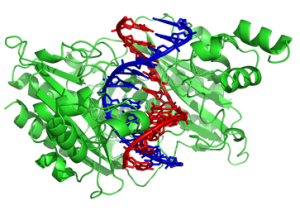Genetic Clue To Anorexia Points To Cholesterol Metabolism
 Finding genetic links to anorexia is a task that has stumped many researchers over the years.
Finding genetic links to anorexia is a task that has stumped many researchers over the years.
Experts still aren’t sure how the disorder develops, but twin studies have suggested that – in addition to environmental factors, stress and puberty – genetics play the largest role.
In a new DNA-sequencing project, a team from The Scripps Research Institute found that gene variants in an enzyme that regulates cholesterol metabolism might contribute to the development of anorexia.
“These findings point in a direction that probably no one would have considered taking before,” Nicholas J. Schork, senior investigator of the study, said in a press release.
The study
Researchers analyzed 334 participants, flagging genes that had been linked to feeding behavior in other anorexia studies. Variants of one gene, EPHX2, seemed to have an association with anorexic patients. This particular gene codes for epoxide hydrolase 2 – an enzyme that helps manage the metabolism of cholesterol.
“When we saw that, we thought that we might be onto something, because nobody else had reported this gene as having a pronounced role in anorexia,” said Schork.
Results
Finding evidence that EPHX2 variants can alter the normal relationship between cholesterol and weight gain, the researchers noted that people with anorexia often have extremely high cholesterol levels in their blood – despite the fact that they are usually malnourished. Other studies have suggested that weight loss can lead to increases in cholesterol levels, and there is also evidence that cholesterol is positively associated with mood. For some anorexics, therefore, it’s possible that by not eating – and losing weight – they, quite literally, feel better because of higher cholesterol levels in the brain.
“The hypothesis would be that in some anorexics the normal metabolism of cholesterol is disrupted, which could influence their mood as well as their ability to survive despite severe caloric restriction,” said Schork.
The study is published in the journal Molecular Psychiatry.
Source: The Scripps Research Institute
 Eating Disorder Self Test. Take the EAT-26 self test to see if you might have eating disorder symptoms that might require professional evaluation. All answers are confidential.
Eating Disorder Self Test. Take the EAT-26 self test to see if you might have eating disorder symptoms that might require professional evaluation. All answers are confidential.